|
To ease the burden family caregivers experience, Oklahoma passed the Caring for Caregivers Act last month, becoming the first state to adopt an expansive caregiver tax credit initiative. Oklahoma State Representative, Tammy West, explains that the purpose of the law is to “allow tax credits for people who are caring for older loved ones in their homes.”
West is hoping that this tax credit helps thousands of Oklahoma residents and acknowledges the hardship families can go through when caring for their loved ones. The Caring for Caregivers Act will help caregivers with expenses that are not covered by Medicaid such as adult diapers and home modifications (e.g., ramps, handlebars). "It is very difficult for caregivers, on average, a family that's taken care of older loved ones at home, it costs about $7,200 a year, just meeting those needs," West said, "So this is a way to kind of take a little bit of that pressure off." The Caring for Caregivers Act will allow a tax credit of up to 50% of eligible caregiver costs. However, there are limits. For example:
Although Oklahoma is the only tax break state with such a program currently, there are other resources out there to help seniors remain independent or help take the burden off caregivers. For example, there are community-based programs that can provide healthy meal deliveries. Meal delivery services generally cost between $8-$13 per meal but are often covered under Medicaid and Medicare Advantage. Verywell Health rated the best meal delivery companies for older adults:
Having healthy prepared meals delivered saves caregivers time and energy while also ensuring that their loved one is still eating a nutritiously dense diet. Having a well-balanced diet is important for overall health. If you have any questions about home care for your loved ones, you can contact us. You can also check out the rest of our blog posts on our website. Written by Madison Chalmers
Image by Freepik
0 Comments
No business or industry is immune to staffing issues and the problems they cause. But what’s being done to ensure that nursing homes are staffed properly?
Jessica R. Towhey of Mcknights Long-Term Care News ereports that “New Jersey nursing homes that violate the state’s staffing minimums could be fined up to $500 per violation under new regulations proposed by the Department of Health.” Towhey continues: “Facilities that are found in violation of the staffing minimums would be required to submit a corrective action plan to the Department of Health. A second violation would require another correction plan and could see the facility fined up to $500 per violation per shift, plus being charged with additional violations equal to the number of staffers for which the shift is short.” There are some people who do not agree with this proposed plan, arguing that it may be counterproductive to enact such penalties. Other states have been more lenient due to concerns about fines and penalties causing more facilities to go out of business. In February 2021, staffing ratios for certified nurse aides (CNAs) were approved by the state, but no penalties have been imposed. The Health Care Association of New Jersey has stated that facilities are having a very difficult time meeting the minimum requirements due to staffing shortages. What are the minimum staffing requirements for CNAs?
How is the state of New Jersey trying to help facilities meet these minimums? The state has updated the criteria needed to certify CNAs. For example, someone who has been employed at a long-term care facility and has completed the skills and written test or has completed training and been given conditional approval pending a criminal background check. Additionally, the criteria were updated to include certified homemaker-home health aides who are also enrolled in a CNA program and actively working towards becoming a CNA. Staffing shortages in facilities means that residents may not be getting the time, attention, and care that they deserve. With a live-in aide, your loved one has constant one-on-one attention. If you have any questions about home care for your loved ones, you can contact us. You can also check out the rest of our blog posts on our website. Written by Madison Chalmers
Image by Freepik
Imagine this: You have a loved one who is experiencing symptoms of Alzheimer’s disease or dementia. They have a car because they have always been independent. One day they take the keys like they normally would run their errands, and suddenly many hours have passed and you’re unsure where they are. You call the police to report them as a missing person hoping that someone has spotted them or will be able to find them.
You’re relieved to learn that if your loved one is confirmed as a missing person, a digital billboard will be posted about their disappearance. “According to the New Jersey State Police, a Silver Alert is activated when an individual with cognitive impairment, who's operating a motor vehicle and is believed to be in danger of death or serious bodily injury, has been listed as a missing person,” explains Dino Flammia of NJ101.5. Currently, the public is alerted of a Silver Alert through digital billboards, after law enforcement has confirmed that the person who went missing was driving a vehicle. However, N.J. Assemblywoman Angela McKnight believes the current system is not doing enough and is pushing for the expansion of Silver Alerts. Her goal is to have Silver Alert notifications be similar to Amber Alerts when a child goes missing. If new legislation is passed, the way we currently see Silver Alerts will change, but how? Flammia explains that Silver Alerts would need to be issued with a distinctive sound tone and the statement, “This is a missing person Silver Alert.” This alert would be broadcasted “as often as possible” during the first three hours and in appropriate intervals thereafter. Although Silver Alerts are meant to reunite loved ones safely, it is important to do your part to keep your loved ones safe. One way to do this is by having difficult conversations about whether it’s safe for them to drive. Discuss with your loved one what it means to lose that independence and how they will continue to have their needs met. As diseases like Alzheimer’s progress, your loved one will become more forgetful, putting their safety at risk. When thinking about how to maintain your loved one’s quality of life while keeping them safe, having a live-in aide may be best route for you and your family. A live-in aide can prevent your loved one from becoming a missing person because someone will always be with them. If you have any questions about home care for your loved ones and, you can contact us. You can also check out the rest of our blog posts on our website. Written by Madison Chalmers
Image by Freepik
As we age, our senses may begin to age. According to the Centers for Disease Control and Prevention, hearing loss is the third most common chronic physical condition in the U.S. The National Institute on Deafness and Other Communication Disorders reports that 1 in 3 Americans aged 65 to 74 have hearing loss and about half of people older than 75 have hearing loss.
What can you do to support optimal hearing?
Choosing foods that are high in potassium (e.g., banana, pineapple, spinach), magnesium (e.g., almond, avocado, broccoli), zinc (e.g., shellfish, cashews, whole grains), folic acid (e.g., beans, lentils, citrus fruits), omega-3 fatty acids (e.g., salmon, sardines walnuts), and antioxidants (e.g., berries, leafy greens) can help support good hearing. Furthermore, Nancy Mitchell, RN explains the importance of remaining hydrated. “Drinking enough fluid ensures your body, including your inner ears, stays hydrated. Sufficient hydration supports your blood circulation and drives oxygen to your ears. As a result, that maintains your auditory functions and promotes overall health.” It’s imperative to drink enough water, especially during the summer months and doing outdoor activities. Additionally, getting regular exercise is also important, not only to support good hearing but for optimal health as well. When you think about exercise, you probably think about running or going to the gym. However, exercise can come in various forms. Finding an activity that you enjoy that is also a form of exercise is the best way to incorporate exercise into your daily routine. Mitchell Nyser of Hartford HealthCare says, “Exercise doesn’t have to be boring. And your exercise journey does not have to look like someone else’s. Your fitness goals are forever changing for one reason or another, so do the activities that you enjoy.” What are some fun ways to get in your exercise and the resulting benefits?
As we age and lose our mobility, exercising may look different – e.g., taking short walks, using low weights while sitting, and utilizing bike pedals. If you have any questions about home care for your loved ones, you can contact us. You can also check out the rest of our blog posts on our website. Written by Madison Chalmers
Image by asierromero on Freepik
Earlier this month, President Biden tripped over a sandbag and fell on stage at the US Air Force Academy graduation. Thankfully, the president was not severely injured from his fall. However, that is not always the case. As we age, our bones become more brittle, and it takes less force to break a bone or become injured. Additionally, older adults are more likely to fall than younger age groups.
Greg Friese explains that many geriatric falls result in 911 calls and require lift assistance. Furthermore, many of these falls result in head, orthopedic, and soft tissue injuries. These injuries often require immobilization, pain management, and inpatient treatment. Unfortunately, many of these falls and injuries also cause a loss of independence for the elderly that have these experiences. The Centers for Disease Control and Prevention reports that 36,000 adults over 65 died due to falls in 2020. Additionally, 3 million falls resulted in emergency room visits. Older adult falls cost $50 billion in medical costs annually. What can cause older adults to fall? There are many examples, but here are a few:
The CDC states, “Falls are a threat to the health of older adults and can reduce their ability to remain independent. However, falls don’t have to be inevitable as you age. You can reduce your chance of falling or help a loved one prevent falls.” The good news is that many of these falls can be prevented. But how?
How can Twin Lights help? Having a 24/7 live-in aide living with your elderly loved ones can greatly reduce the risk of falls. Aides are trained to keep your loved ones as safe as possible. If you have any questions about home care for your loved ones, you can contact us. You can also check out the rest of our blog posts on our website. Written by Madison Chalmers
Image by Freepik
Eating a nutritiously dense diet is important for all, but especially for the elderly. As we get older, our body metabolizes things differently and we are also at greater risk for certain health conditions such as high blood pressure and cardiovascular disease. According to the World Heart Federation, about 10 million people a year die due to cardiovascular disease.
What role does salt play in this? High salt intake is connected to high blood pressure and cardiovascular disease. Olivia Dimmer of Northwestern Medicine explains that recent studies show that “salt substitutes may be effective in lowering blood pressure and reducing cardiovascular events in residents of elderly care facilities.” ` Peking University studied 1,612 residents among 48 elderly care facilities in China. Over a two-year period, residents were either given meals containing regular salt amounts, had a salt substitute, or had their salt intake restricted. It was found that using a salt substitute lowed blood pressure and resulted in fewer cardiovascular events. Although previous studies have concluded that reduced salt intake reduces blood pressure, it was inconclusive in this study because the residents who had their salt intake restricted were able to add table salt to their meals. The study did conclude that salt substitutes are very effective in lowering blood pressure and cardiovascular events. It is important to note that more research is needed. Additionally, there may be situations where salt substitutes may not be as helpful. For example, if food has a high amount of salt when purchased prior to any cooking/seasoning. According to the National Institute on Aging, older adults should choose foods with no added sugar, saturated fats, and sodium. Plenty of protein should be eaten every day as well as fruits and vegetables. Staying hydrated is also important as well getting enough vitamins such as B12. To eat a balanced diet, it is recommended to add fruits and vegetables to meals and snacks. Additionally, substituting herbs for salt can have health benefits. Meal planning can help improve and maintain a nutritious diet. Examples for a healthy breakfast include:
Examples for a healthy lunch include:
Examples of a healthy dinner include:
Examples of healthy snacks include:
If you have any questions about home care for your loved ones, you can contact us. You can also check out the rest of our blog posts on our website. Written by Madison Chalmers
Image by wirestock on Freepik
Health care is constantly evolving and there is always room for improvement. Home care continues to grow in part due to the conditions in nursing homes. It is well known that nursing homes are severely understaffed and as stated in a previous blog, elder abuse is increasing. This is happening across the USA, but what is happening in other countries?
China plans to restructure their elderly care system by 2025. Wang Songsong of China Daily reports: “A recent survey revealed 99% of elderly in Beijing polled prefer home-based care and less than 1% would opt for institutional care.” China enacted a one-child policy in 1980 and didn’t end the policy until 2015, which means for over three decades families were very small. Small families mean less people available to care for their aging family members. The Health World reports that many nursing homes in China are currently unaffordable for many elderly due to small pensions and public options are often not suitable or desirable to live in. However, new facilities being built will be done in accordance with government standards and current facilities will be renovated. According to China’s National Health Commission, there are 280 million people living in China that are at least 60 years old, this number is expected to almost double by 2035. Currently, there are 8 million beds available in nursing homes, but by 2035 there will need to be at least 40 million beds to accommodate the growing elderly population. By 2025, China would like to have improved basic elderly care services and better resources for the vulnerable aging population. Guidelines for improving elderly care include creating a list of basic elderly care services based on economic, social development level, and financial factors. Services will include material assistance and nursing/caregiving and will be required to provide visiting services for those living alone and for families facing financial hardship. Each province is also required to “improve the basic pension system service and implement a long-term care security,” reports The Health World. Additionally, due to the growing popularity among Beijing’s oldest citizens, Beijing is piloting a home-based model in certain neighborhoods with the aim of expanding into all urban regions. Home care has a place in many countries and is becoming increasingly desired among the elderly all over the globe. If you have any questions about home care for your loved ones, you can contact us. You can also check out the rest of our blog posts on our website. Written by Madison Chalmers
Image by Wiroj Sidhisoradej on Freepik
Robots and artificial intellifence are the future, but where do they fit in healthcare?
Sarah Falcone of nurse.org explains how robots are changing healthcare this year. According to InsightAce Analytic, the worldwide robotic nurse industry is expected to grow 17% by 2031. According to Healthcare Dive, the Food and Drug Administration (FDA) authorized 91 AI medical devices last year. In Japan, robots have been prominent in healthcare for several years, and similar technology is finally being seen in the USA. Falcone discusses 6 robots that are being used in healthcare situations. They include:
Although robots have proven to be helpful, it is important to remember that robots are not meant to replace human caregivers, but rather support them. Nurses and other human practitioners in the healthcare field will continue making clinical judgements and provide compassionate care. However, robots can support those healthcare workers in doing their job and increase efficiency by performing the simple, time consuming, and routine tasks. Developments in AI can also fulfill unmet needs in nursing homes. By taking tasks off healthcare workers’ hands, robots allow them to have more time to provide direct patient care, resulting in better treatment and better patient outcomes. All of which will reduce the number of staff required. “Familiarity with robotic systems will help healthcare workers to effectively collaborate with these technologies, maximizing their benefits and solving potential problems,” says Falcone. What other benefits do robots provide in the healthcare setting? Some include:
AI will continue to expand in healthcare and will eventually spread to care in homes as well. If you have any questions about home care for your loved ones, you can contact us. You can also check out the rest of our blog posts on our website. Written by Madison Chalmers
Image by rawpixel.com on Freepik
What is hospice care? According to CrisisPrevention.com, “Hospice care is specialized care given to people who are in their last stages of life, whether from advanced illness or life-limiting injury. This type of care is specifically designed to focus on patient quality of life and comfort, rather than recovery or cure. In addition to medical services, hospice care provides patients with emotional and spiritual support. Hospice care also delivers guidance and support to the patient’s loved ones and caregivers during the care process and after their passing.”
Those who receive hospice care at home will no longer be going to routine medical visits or waiting in long lines at the emergency room as they will receive 24/7 care in their homes to manage their pain and illness(es). How does one qualify for hospice care? According to the Medicare website, “Only your hospice doctor and your regular doctor (if you have one) can certify that you’re terminally ill and have a life expectancy of 6 months or less. After 6 months, you can continue to get hospice care as long as the hospice medical director or hospice doctor re-certifies (at a face-to-face meeting) that you’re still terminally ill.” When people hear the words “hospice care,” they may feel frightened or overwhelmed thinking that death is near. Lisa Piper of Focus on the Family explains that hospice care does not mean someone is giving up nor does it speed up or cause death. Additionally, hospice services can always be cancelled. When someone is on hospice care, their terminal illness will no longer be treated, but they can still receive medication for other non-related illnesses. What specific services are offered with hospice care? They include:
Like routine home care, there are multiple ways that hospice can be paid for including
Hospice care can be a good option for those choosing to receive care at home and are battling a terminal illness. \When it comes to home care, many families are paying out-of-pocket. And although it is possible for hospice care to be paid out-of-pocket it is more commonly paid for through an insurance company, which can ease the financial burden on families who are already paying for home care. If you have any questions about home care for your loved ones, you can contact us. You can also check out the rest of our blog posts on our website. Written by Madison Chalmers
Image by rawpixel.com on Freepik
As home care continues to grow in popularity, many may find themselves asking “Is aging in place right for myself and/or my loved ones?” When the difficult decision is made that our loved ones can no longer live independently, a lot of changes occur. Many of these changes are difficult for our loved ones to accept, so being able to stay in their own homes may make the transition easier. However, that is not always possible.
Elder Law Answers explains what it means to age in place and what is needed to be able to do it successfully. It is imperative to think about your loved one’s physical, emotional, and social well-being when deciding on where they should spend the rest of their lives. Things to consider when choosing to age in place include:
The Centers for Disease Control and Prevention defines aging in place as a senior’s “ability to live in one’s own home and community safely, independently, and comfortably, regardless of age, income, or ability level.” Many older adults can remain living in their homes with the help of caregivers or live-in aides. Professional caregivers can assist older adults with completing activities of daily living such as bathing, toileting, dressing, meal preparation, mobility, and engagement. Aging in place is still possible for those who can no longer live by themselves but want to remain in their home. As we’ve seen in previous blog posts, home care continues to be what older adults tend to want the most. “According to 2021 data from AARP, more than three-quarters of adults 50 and older say they would prefer to age in place.” Aging in place also comes with numerous benefits including being familiar with surroundings and feeling safe. Danae King of The Columbus Dispatch explains how a new service called NaviGuide, can help older adults and their families navigate the services they need and want to help older adults stay in their homes. “NaviGuide launched a year ago and matches adult children and their aging parents with a service coordinator who will then come to their home for a visit and home assessment, or meet with them via a video call. During the first visit, service coordinators determine the needs and wants of the older adult and then work to find those services within the community and determine eligibility, financial burden and more,” explains King. The purpose of NaviGuide is to provide knowledge and support for older adults and their families as they transition to having care. There is no eligibility requirement for NaviGuide, making it more accessible to those who may need it. However, there is a $99 monthly membership fee. If you want to learn more about NaviGuide you can visit the website here. If you have any questions about home care for your loved ones, you can contact us. You can also check out the rest of our blog posts on our website. Written by Madison Chalmers
Image by Freepik
|
AuthorT.J. Foderaro Archives
February 2020
Categories
All
|
Copyright © 2023, Twin Lights Home Care, All RIghts Reserved
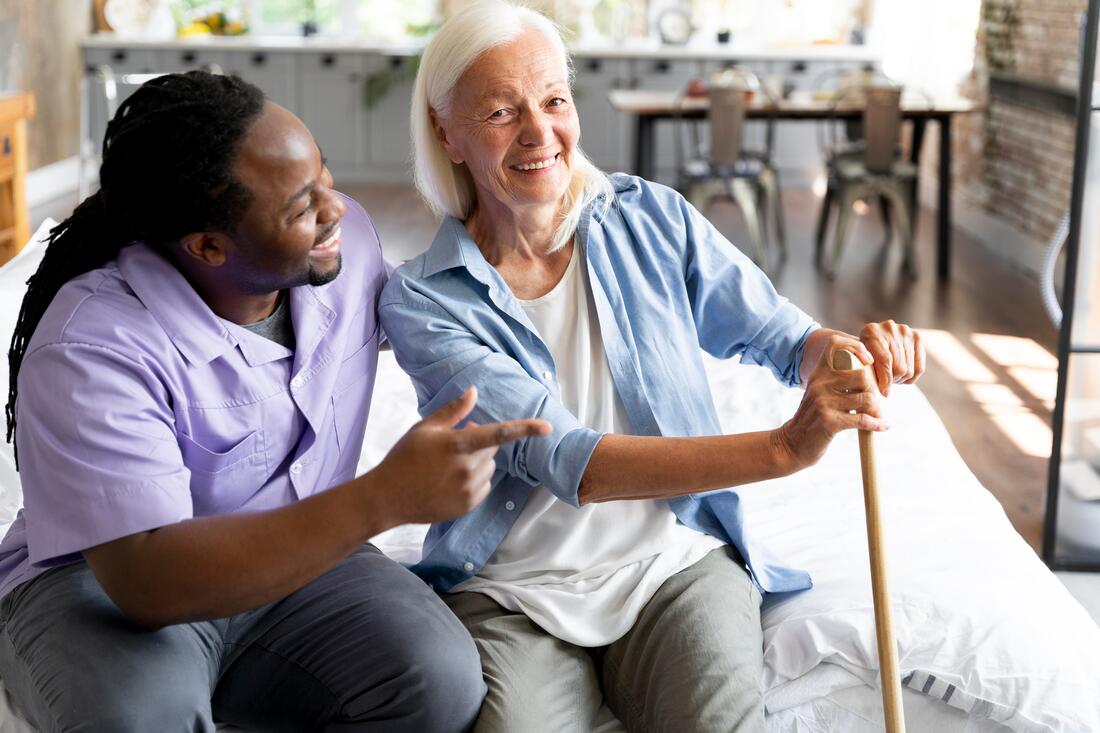
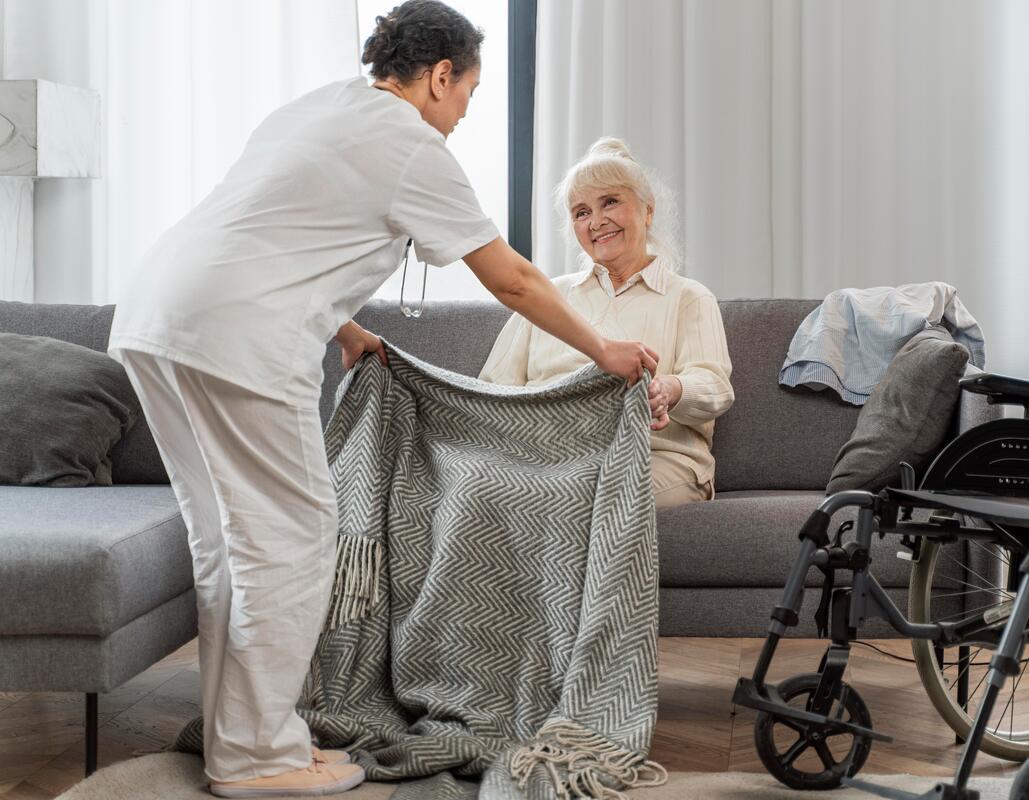
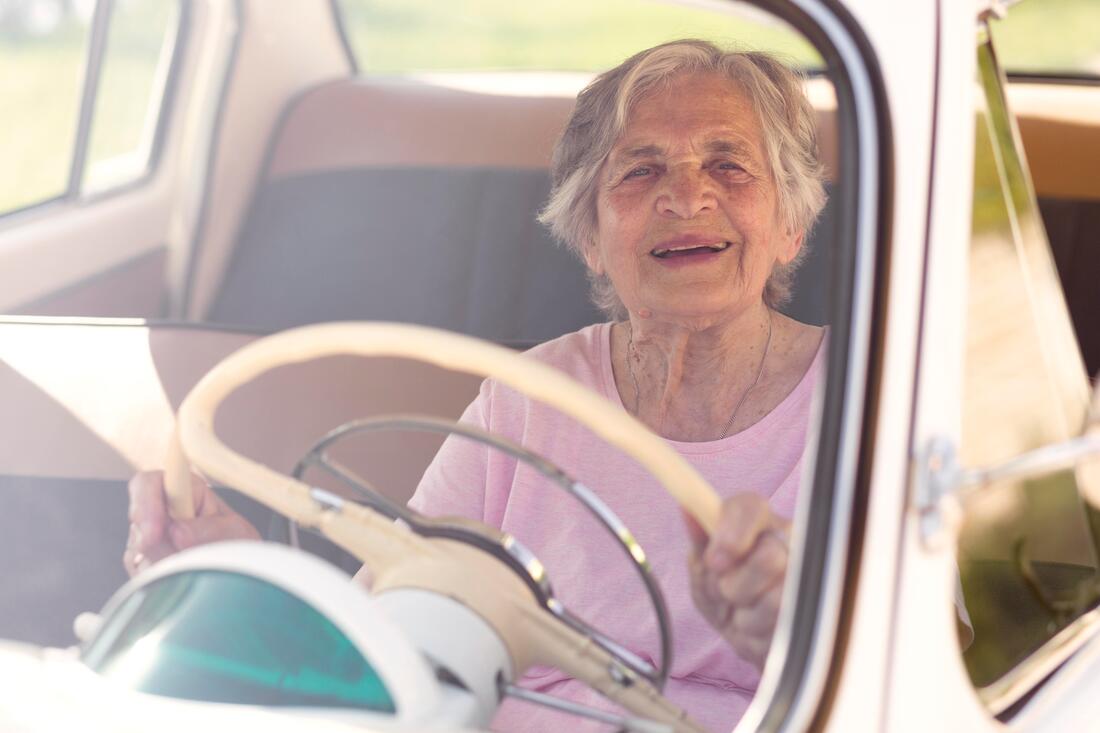

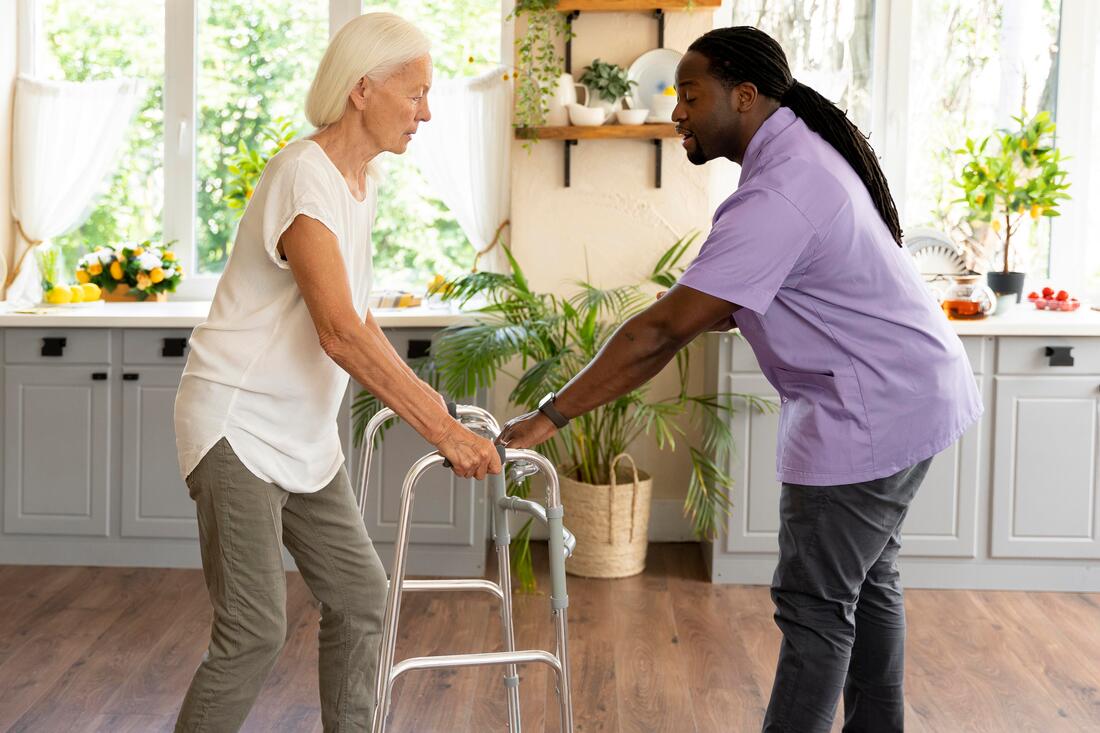




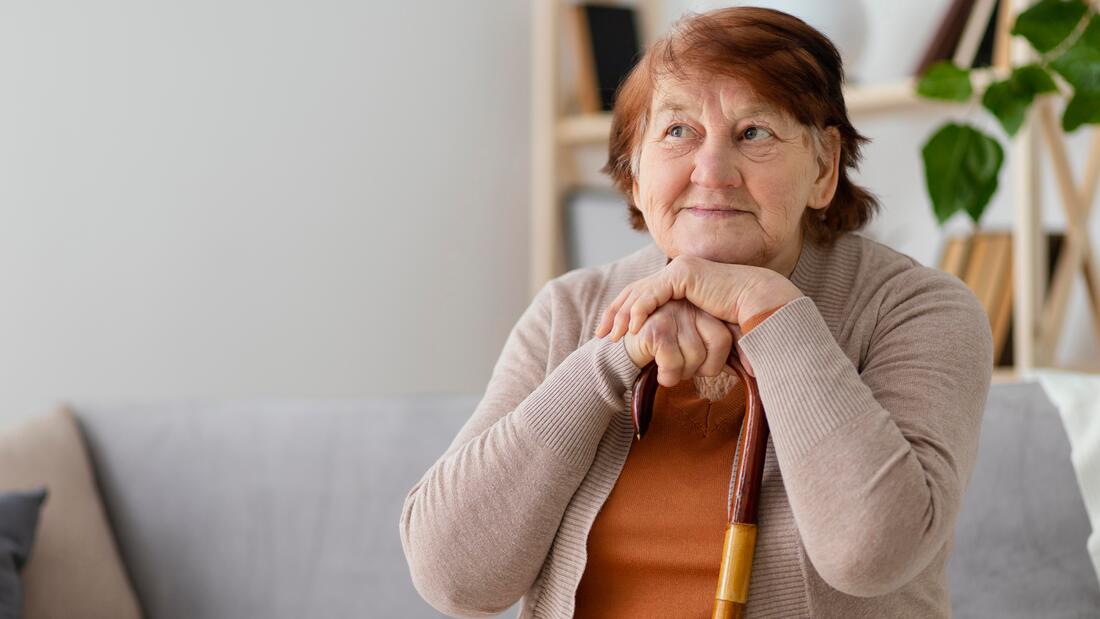
 RSS Feed
RSS Feed
